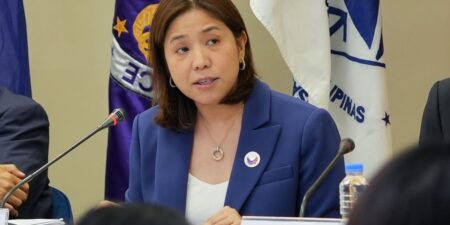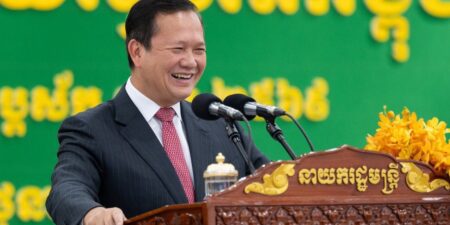BGA Head of Research Murray Hiebert, India Managing Director Ratan Shrivastava and Australia Managing Director Michael “Mick” McNeill wrote an update to clients on the Quadrilateral Security Dialogue (“Quad”) leaders’ summit.
Context
- U.S. President Joe Biden hosted Indian Prime Minister Narendra Modi, Australian Prime Minister Anthony Albanese and Japanese Prime Minister Fumio Kishida in Wilmington, Delaware, September 21 for the fourth in-person meeting of the Quad. The leaders highlighted the Quad’s success in pooling resources and playing to each other’s comparative advantages, including the ability to leverage the private sector and people-to-people ties, to deliver sustainable development, improve livelihoods and forge stronger ties with partners in the region. Of note is the Quad Investors Network, which seeks to mobilize investment in clean energy, semiconductors, critical minerals and quantum to build supply chain resilience, promote innovation and develop the workforce.
- The summit emphasized the strategic alignment of the Quad members on a raft of initiatives, their interest in the well-being of partners across the Indo-Pacific and their commitment to the Quad’s endurance. In their uncharacteristically firm joint statement, the leaders condemned unilateral efforts to upset the status quo and destabilize the region. They explicitly mentioned China’s aggressive behavior in the South China Sea and North Korea’s provocative missile launches, underscoring the need to uphold a rules-based international order to ensure peace and prosperity in the region. At the same time, the leaders affirmed their dedication to support the U.N. Charter and cooperate with regional institutions, including the Association of Southeast Asian Nations, the Pacific Islands Forum and the Indian Ocean Rim Association.
- The meeting concluded with the announcement of several new initiatives and the expansion of existing ones, including those related to health security, humanitarian assistance and disaster relief, maritime security, quality infrastructure, critical and emerging technologies, climate and clean energy, cyber and space.
Significance
- India’s first national security semiconductor fabrication plant will be set up in 2025 to manufacture infrared, gallium nitride and silicon carbide semiconductors. The fab will supply chips to the U.S. armed forces, its allied militaries and the Indian defense forces, catering to next-generation applications. This is a strategic technology partnership between the U.S. Space Force and India’s private sector, with financial support from the India Semiconductor Mission.
- The Quad members issued a Statement of Principles on Clean Energy Supply Chains to guide their engagement and promote energy security, affordability and sustainability. This is expected to strengthen bilateral energy partnerships between members, such as the U.S.-India Strategic Clean Energy Partnership, which held its third ministerial meeting earlier this month.
- Albanese, who described the meeting as “a discussion of likeminded democracies,” emphasized Australia’s role in the Quad Cancer Moonshot and Quad coast guard cooperation. Asked if Australian personnel would be on U.S. Coast Guard ships patrolling the South China Sea, Albanese said, “details will be worked out,” but “it’s not necessarily U.S. Coast Guard ships.”
- Climate change policy is at the core of Albanese’s diplomacy. The Australian government will open applications for the Quad Clean Energy Supply Chains Diversification Program in November 2024.
- Kishida and his counterparts agreed to implement a Maritime Initiative for Training in the Indo-Pacific to enable partners in the region to maximize tools supplied through the Indo-Pacific Partnership for Domain Awareness to monitor and secure their waters and deter unlawful encroachment.
- Japan joined the leaders of Australia, India and the United States in expanding 5G and open radio access networks to the Philippines and Tuvalu to help these countries secure their communications systems.
Implications
- Modi will become the grouping’s senior-most leader when India hosts the next summit in 2025. This will be the last Quad Leaders’ Summit that includes Biden and Kishida as heads of state. The next Australian federal election is scheduled to take place in September 2025, and Albanese is expected to seek reelection.
- There is strong bipartisan support for the Quad in Canberra. An election will be held by May 2025, and the political class will welcome the Quad’s undertakings for the commerce and industry ministers to meet for the first time and for Quad governments to deepen interparliamentary exchanges.
- Japan’s prime minister joined the other leaders in committing to work with Pacific Island countries, particularly on climate change, ocean health, resilient infrastructure, maritime security and financial integrity.
We will continue to keep you updated on Quad developments as they occur. If you have any questions or comments, please contact BGA Head of Research Murray Hiebert, India Managing Director Ratan Shrivastava, Australia Managing Director Mick McNeill or Japan Managing Director Kiyoaki Aburaki.
Best regards,
BowerGroupAsia

Head of Research
Murray is a top Asia expert and skilled researcher with three decades of experience living and working in Asia. His networks in business, media and government circles are deep and wide-ranging. He is also a senior associate of the Southeast Asia Program at the Center for Strategic and International Studies (CSIS) in Washington, D.C. Earlier he served as deputy director of the program for six years. Prior to joining CSIS, Murray served for five years as senior director for Southeast Asia at the U.S. Chamber of Commerce where he worked with leading American companies, the U.S. government and Southeast Asian ...
Read More


























